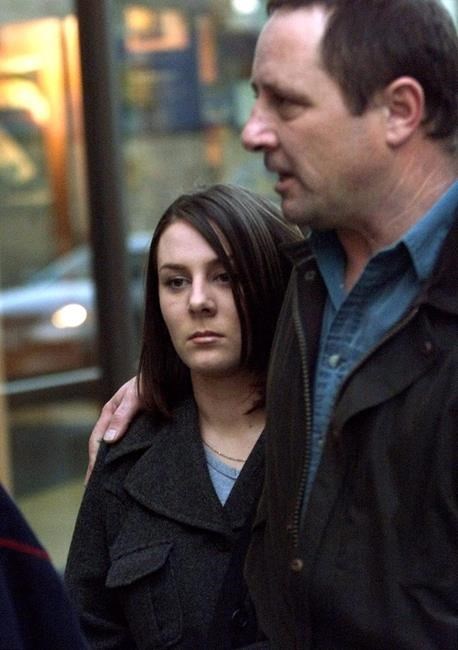Kelly Ellard, convicted of second-degree murder in the 1997 beating and drowning death of 14-year-old Reena Virk, has had her day parole extended by another six months.
Overnight leave was also authorized.
Ellard, who is in her mid-30s, now goes by Kerry Marie Sim. She was convicted in 2005.
The Parole Board of Canada’s decision on Ellard comes with ongoing conditions, including that she not consume drugs or alcohol and that she avoid certain people.
Ellard was initially granted day parole in 2017. The decision says it was approved when it was determined she would not be an undue risk to society and notes she has been on day parole since without incident.
Day parole allows offenders to take part in activities within the community. They return each night to a community-based residential facility or halfway house, unless the parole board designates otherwise.
“During the period of review, you have participated in counselling,” the decision says of Ellard. “Reports indicate you reflect a positive attitude, avoid negative associations and have secured employment.”
Reena was swarmed and beaten by a group of mostly teen girls under the Craigflower Bridge on Nov. 14, 1997. As she limped across the bridge after the attack, she was followed by Warren Glowatski, then 16, and Ellard, then 15. The two continued the assault, and then drowned Reena by holding her head under water.
Ellard was tried three times. She was convicted in 2000, but the decision was overturned on appeal and a new trial was ordered. Her second trial ended in a hung jury, and her third jury found her guilty in 2005. That conviction was overturned by the B.C. Court of Appeal in 2008, but the Crown appealed it to the Supreme Court of Canada in 2009. The court’s 8-1 decision ended the prospect of a rare fourth trial for Ellard.
Manjit Virk, Reena’s father, said contact from the parole board “has become like a routine for us now.”
“The parole board has to do their formalities to inform us,” he said. “But personally, we have moved on now and we know that that’s the process that has to take place and [Ellard] will be basically on parole for life now.
“She’s moving around and if she does good, she’ll get more freedom, and if she slips then she’ll go back again. I hope finally she figured that out.”
He said the horror of what happened to his daughter is always there.
“After that, we have been involved in teaching kids and educating them, and we actively participated with all the hearings.”
Ellard now has a son, having become pregnant in 2016 during a conjugal visit with her boyfriend. The decision says there are concerns about the man’s “reported criminality.”
“This is a relationship that requires monitoring,” the decision says. “However, you also completed correctional programming, stopped acting out in prison, took counselling and therapy, stopped using substances and appeared to have committed to making positive, lifelong changes.”
The board remains concerned with “the level of violence you have demonstrated you are capable of,” the decision says.
“The impacts of your offence continue for the deceased’s family to this day.”
The crime also “shocked the greater community,” the decision says. “It took you a long time to accept full responsibility for the murder and to admit to the level of violence you committed.”
Aspects of Ellard’s past were noted, including her use of marijuana and alcohol from a young age. The decision says she developed a substance-abuse issue while incarcerated.
“Any intoxicant has the potential of reducing your capacity to manage your emotions effectively,” it says. “Sobriety is an important risk-reduction strategy in your case.”
Ellard must also stay away from anyone engaged in illegal activity or substance abuse.
The decision says that while Ellard’s institutional behaviour had been “problematic” at times, her last violent incident was in 2009. She was assessed as a minimum-security offender in September 2016, then granted a series of escorted temporary absences.
Ellard can have no contact with the Virk family, the decision says: “The deceased victim’s family has suffered the violent loss of their child and they have the right to live their lives without any concern of unwanted contact from you.”



